Transforming Healthcare Delivery: The Rise of Medical Laptop Carts in Patient Care
The integration of technology in healthcare has revolutionized patient care, with one notable advancement being the adoption of medical laptop carts. These mobile solutions are increasingly being utilized across healthcare facilities to enhance clinician efficiency and improve patient engagement. According to a recent report from the Healthcare Information and Management Systems Society (HIMSS), up to 80% of healthcare organizations have implemented mobile computing solutions like medical laptop carts to support real-time data access at the bedside.
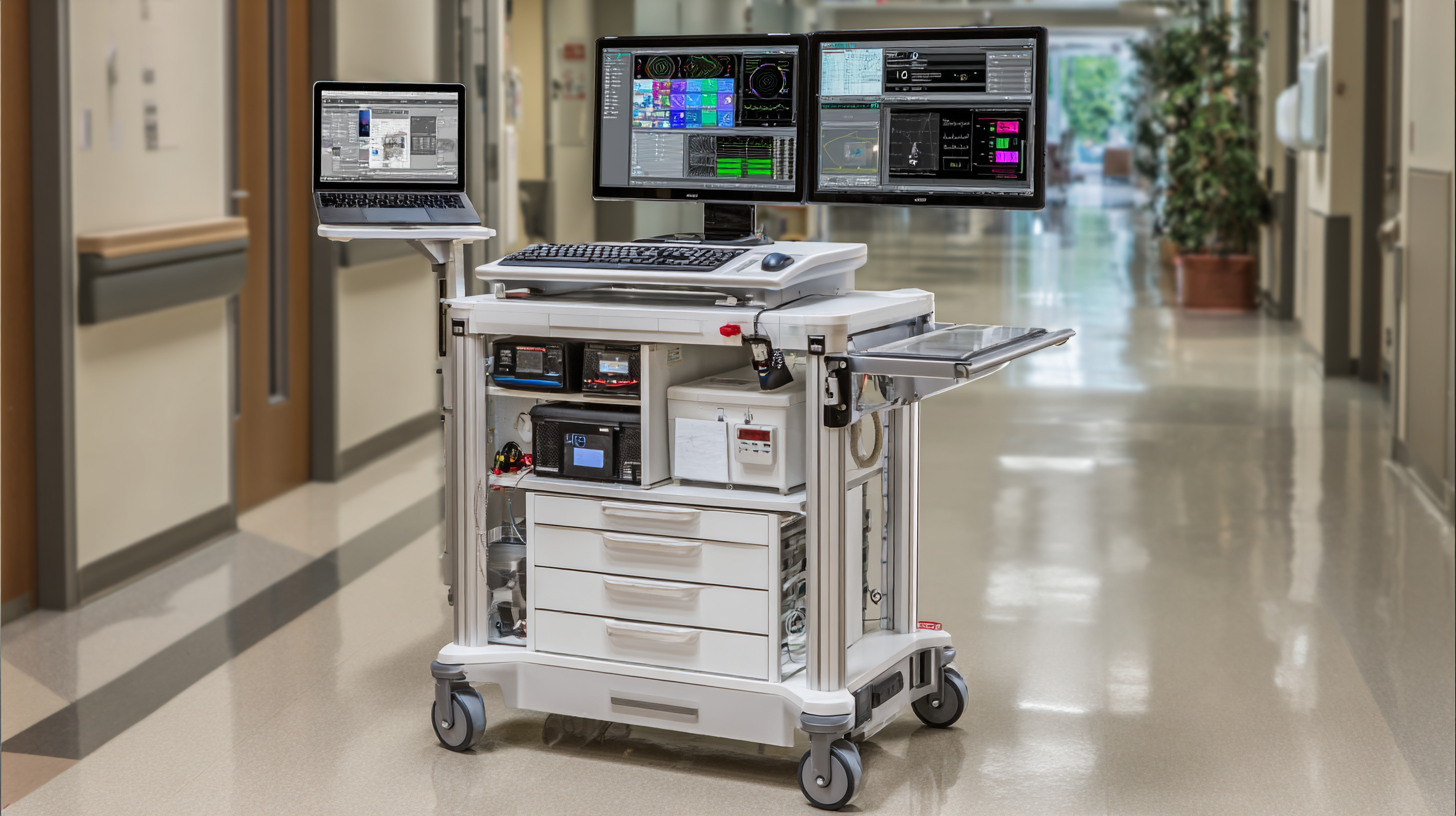
This capability not only streamlines documentation processes but also fosters better communication between healthcare staff and patients. As healthcare systems strive for operational efficiency and improved patient outcomes, the rise of medical laptop carts exemplifies a significant shift towards digitally-driven solutions in patient care. With the global market for medical laptop carts projected to reach $200 million by 2026, it is evident that these tools are becoming indispensable in today’s healthcare landscape.
The Evolution of Medical Laptop Carts in Modern Healthcare Settings
The evolution of medical laptop carts has significantly transformed patient care in modern healthcare settings. Initially designed for mobility and ease of access, these carts have progressed to integrate advanced technology that enhances the efficiency of healthcare professionals. Early models were primarily simple, wheeled structures that allowed nurses and doctors to bring computers closer to patients. However, as the demand for electronic health records (EHRs) grew, so did the complexity and functionality of these carts.
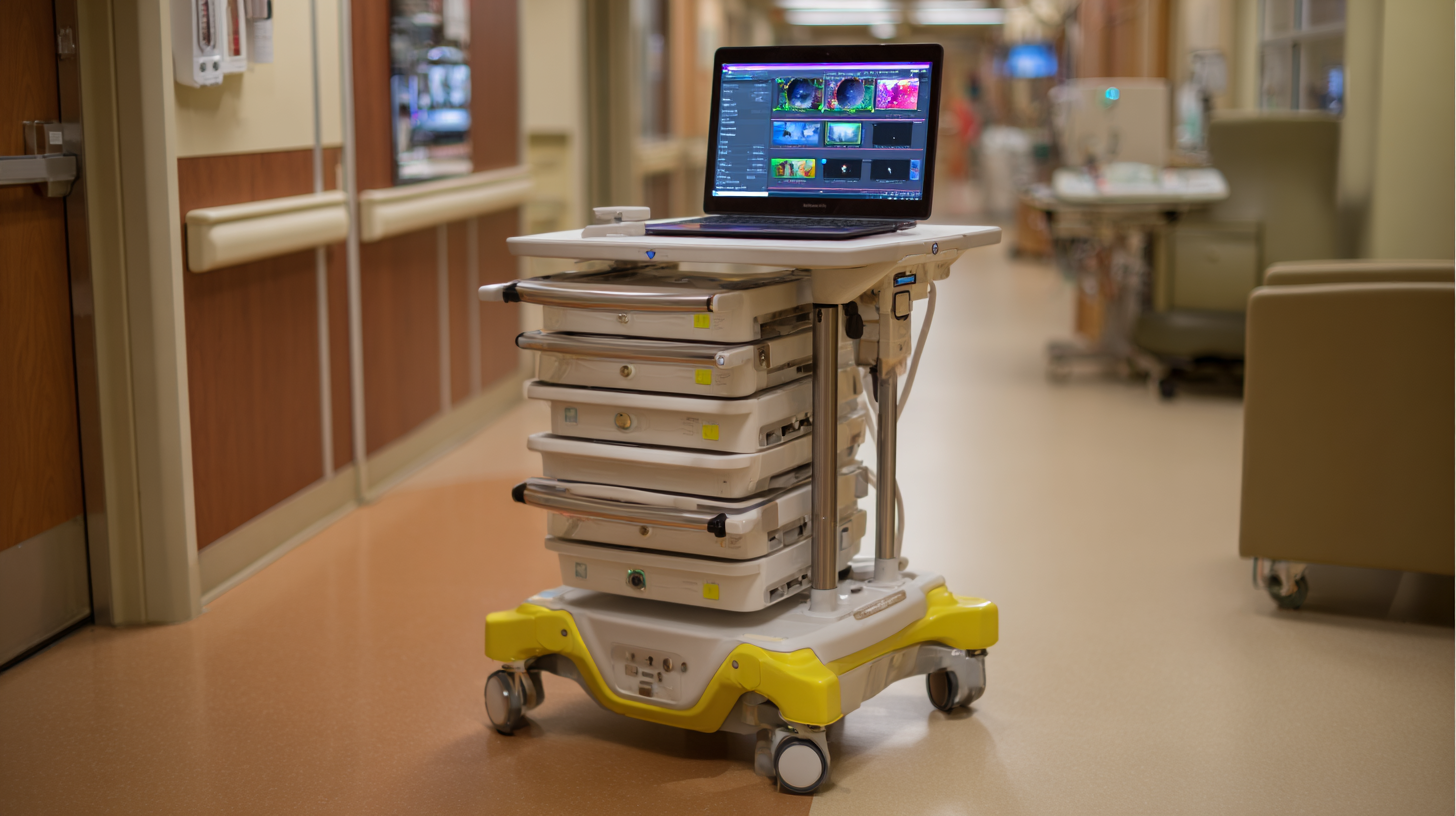
Today, medical laptop carts are equipped with features such as height adjustment for ergonomic use, built-in power supplies, and seamless connectivity to hospital networks. This allows healthcare workers to document patient information in real-time, reducing the risk of errors and improving overall safety. Furthermore, many models now embrace smart technology, facilitating telemedicine and video consultations, which have become especially vital during times of social distancing. The continuous refinement of medical laptop carts signifies a shift towards a more integrated and patient-centered approach to healthcare delivery, ensuring that medical professionals can provide timely and effective care.
Impact of Mobile Technology on Patient Interaction and Care Efficiency
The integration of mobile technology in healthcare has noticeably transformed patient interaction and care efficiency. Medical laptop carts enable healthcare providers to access patient data and records at the point of care, significantly enhancing communication. According to a report by the American Hospital Association, facilities that utilize mobile computing solutions have reported a 30% improvement in clinician efficiency, which translates to better-managed patient interactions and a more personalized care experience.
Furthermore, mobile technology fosters real-time consultations and enables healthcare professionals to make swift, informed decisions based on up-to-date information. A study published in the Journal of Medical Internet Research indicated that 78% of nurses utilizing mobile devices reported being able to respond more quickly to patient needs. This immediacy not only elevates the level of care provided but also boosts patient satisfaction—leading to higher retention rates. As medical laptop carts continue to proliferate within healthcare settings, their impact on operational efficiency and patient engagement becomes increasingly evident.
Transforming Healthcare Delivery: Impact of Medical Laptop Carts
This chart illustrates the impact of mobile technology, specifically medical laptop carts, on patient interaction and care efficiency across different healthcare settings. The data reveals improved efficiency in patient care as a result of implementing mobile technologies in hospitals and clinics.
Data-Driven Insights: Improving Workflow with Medical Laptop Carts
The integration of medical laptop carts into healthcare delivery has significantly transformed patient care, with data-driven insights showcasing their impact on workflow efficiency. According to a recent report by the Healthcare Information and Management Systems Society (HIMSS), healthcare facilities utilizing mobile computing solutions like laptop carts have reported a 25% increase in staff productivity. This improvement is largely attributed to the seamless access to patient data and electronic health records (EHRs) right at the bedside, enabling clinicians to make informed decisions quickly and accurately.
Furthermore, implementing medical laptop carts can lead to time savings in documentation processes, as confirmed by a study from the Journal of Medical Internet Research (JMIR), which found that health providers can reduce the time spent on data entry by 30% when using mobile solutions. This efficiency not only enhances patient satisfaction but also allows healthcare personnel to allocate more time to direct patient interaction.
Tips for Effective Use of Medical Laptop Carts:
- Ensure proper training for all staff on using laptop carts to maximize their potential and minimize downtime.
- Regularly assess the layout and accessibility of laptop carts in patient rooms to ensure they complement workflow and do not obstruct care processes.
- Integrate real-time data entry functions to minimize lag and improve documentation accuracy, thereby enhancing overall patient safety and care outcomes.
Comparative Analysis: Traditional vs. Mobile Medical Workstations
The advent of mobile medical workstations has revolutionized healthcare delivery, presenting a stark contrast to traditional setups. According to a recent report by KLAS Research, nearly 70% of healthcare providers noted significant workflow improvements after adopting mobile medical carts. This shift allows for seamless access to electronic health records (EHR) at the point of care, reducing documentation time by an average of 20%. Traditional stationary carts, while effective, often lead to increased staff movement, which can hinder efficiency and disrupt patient interactions.
Moreover, mobile medical workstations enhance patient engagement by facilitating real-time communication between healthcare professionals and patients. A study published in the Journal of Healthcare Information Management found that integrating mobile carts significantly increased patient satisfaction scores. Patients appreciate the visibility of their medical professionals accessing their information right at their bedside, fostering a sense of involvement in their care. As healthcare institutions continue to seek ways to improve service delivery, the transition from traditional to mobile solutions represents a critical step towards achieving enhanced operational efficiency and patient-centered care.
Trends in Patient Safety and Satisfaction with Laptop Cart Integration
The integration of medical laptop carts in healthcare settings has significantly impacted patient safety and satisfaction. These mobile units allow healthcare providers instant access to patient records, treatment protocols, and real-time communication with other medical staff, which enhances coordination and reduces the risk of errors. When healthcare professionals can quickly retrieve and document information at the bedside, it minimizes interruptions in care and facilitates a more seamless patient experience.

Moreover, the presence of medical laptop carts has been shown to increase patient engagement. Equipped with technologies that allow for patient education and personalized health information, these carts enable better interaction between caregivers and patients. This not only fosters a greater sense of involvement among patients in their own care but also enhances their overall satisfaction with the healthcare experience. As hospitals increasingly adopt laptop cart technology, they create an environment where patient safety and satisfaction are prioritized, leading to better outcomes and more efficient healthcare delivery.
Related Posts
-
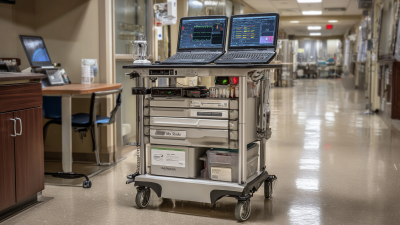
How to Choose the Right Medical Laptop Cart for Enhanced Workflow Efficiency in Healthcare Facilities
-
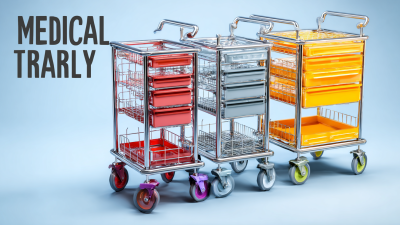
Top Strategies for Choosing the Best Medical Trolley Cart for Your Facility
-
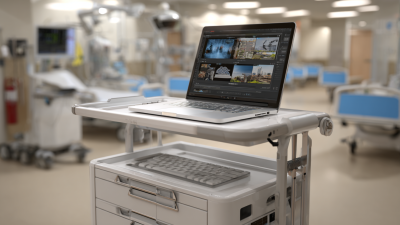
The Rise of Medical Laptop Carts in Modern Healthcare Environments
-
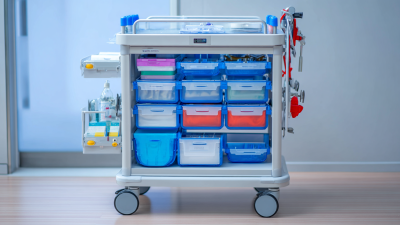
7 Essential Tips for Choosing the Best Rolling Medical Cart
-
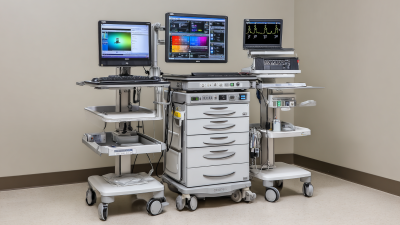
Ultimate Guide to Choosing the Best Medical Computer Cart for Your Facility
-
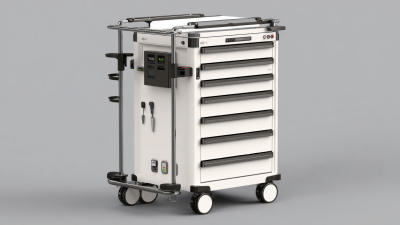
Exceptional Manufacturing from China's Leading Factory for Best Mobile Medical Carts
